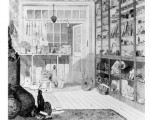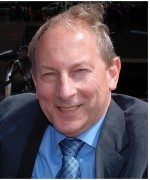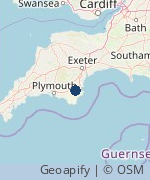Charles Roach Smith (1806-90) and the first Museum of London
Dr. Michael Rhodes
- Region:
- Anywhere
- Notice Period:
- Emergency (maybe less than one week's notice)
- Type:
- Professional
- Fee:
- Paid: £60 plus expenses
- Category:
- History
- Updated:
- 30th January 2023
- Tagged:
- London History | Museum | Collecting | Archaeology
After Roach Smith established his Pharmacy in the City of London in 1834, he became aware of the large numbers of antiquities being unearthed in excavations for new sewers. Realising their importance, he began to pay small boys to collect and bring him the treasures. The Museum he created behind his shop became a well-known visitor attraction and a focal point for London antiquarians. Due to his grown reputation he was elected a Fellow of the Society of Antiquaries of London, and subsequently helped to form the British Archaeological Association. When he decided to retire in 1854 he offered his important collection to the British Museum. Because the Museum's Trustees liked only Greek antiquities, the Museum was reluctant to act, but a public campaign by local antiquarians eventually forced them to change their mind. Roach Smith's collection today forms the core of the Museum's Department of Roman and British Antiquities.
Views: 1303 | Enquiries: 4About Dr. Michael Rhodes
From 1974-1992 Dr. Michael Rhodes was "Finds Officer" for the Museum of London's Department of Urban Archaeology. Here he led a team of 50 archaeologists, responsible for the care and study of finds from City of London excavations.
From 1988 to 1992, he set up the Waterfront Finds Museum - part of the Tower Hill Pageant. This won the Museum of the Year award in 1993.
Dr. Rhodes moved to Devon in 1992, to become The Head of Museum Services for Torbay Council. His main responsibility was for Torre Abbey, a Grade I listed building in need of major repair. He made two successful Lottery bids, which led to grants worth £8.5m, enabling the building to be saved and redisplayed. In 2015 he published the award-winning book "Devon's Torre Abbey: Faith, Politics and Grand Designs" (History Press 2015).
From 1999-2003 he chaired the Devon Museums Group, organising four annual conferences for museum professionals in Devon. He also undertook four consultancies on archaeology and heritage for the Hong Kong government.
Advice to Hosts: "All my talks are based on original research, most of which has been peer-review and published. I always tailor my talks to my audience, so they are not overly academic. To ensure I can concentrate on the talk, I ask my hosts to provide a screen and a Powerpoint projector."
Other Talks on SpeakerNet by Dr. Michael Rhodes
- Medieval Spectacles
- Devon's Torre Abbey - the rediscovery and renewal of a national monument
- A Curator's Challenge - reshaping Torre Abbey's collections
- From Scotland to Jamaica - the Planter's experiences
- Charles Roach Smith (1806-1890) and the discovery of the Anglo-Saxons
- South Devon's secret Catholics
- Thomas Edwin Mostyn (1864-1930) - Torbay's greatest painter
Send a message to the speaker
If you are interested in this talk and wish to contact the speaker, please complete the following form:


